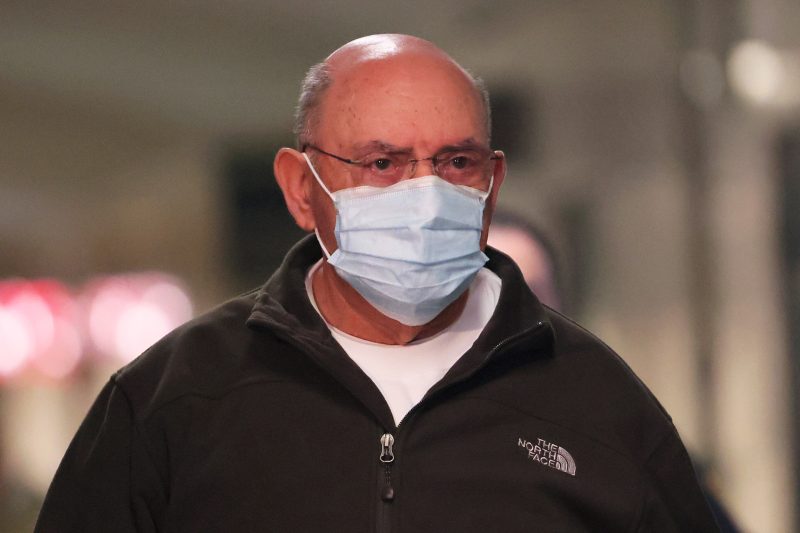
Trump financial officer Allen Weisselberg sentenced to five months in jail
NEW YORK — Longtime Trump Organization finance chief Allen Weisselberg, who pleaded guilty in August to 15 counts including tax fraud, conspiracy and grand larceny, on Tuesday was sentenced to serve five months in jail.
Authorities had promised Weisselberg a steeply reduced sentence in exchange for testifying against Trump Organization. He had faced up to 15 years in prison.
Weisselberg, testifying as a witness for the prosecution during a Trump Organization criminal trial in New York Supreme Court in November, said on cross-examination that he was embarrassed by his conduct and that his actions betrayed the Trump family, for whom he had worked for a half-century. Weisselberg testified that he was acting only for his own benefit.
The company was convicted of tax crimes in December. It had been charged with scheme to defraud, conspiracy, criminal tax fraud and falsifying business records. Former president Donald Trump was not charged with wrongdoing in the case.
The testimony by Weisselberg, 75, revealed some of the inner workings of the Trump Organization’s structure and finances.
He admitted to avoiding taxes on $1.7 million in company benefits from 2005 to 2017 by receiving perks that should have been taxed as income but weren’t. He benefitted from a number of unreported high-priced items that should have been counted as compensation including a Manhattan apartment, Mercedes Benzes and tuition payments at a pricey private school for his grandchildren.
Weisselberg is expected to go to the Rikers Island city jail complex, where he will likely serve about 100 days of his actual sentence if he’s credited for good behavior, according to his lawyer, Nicholas Gravante. His age or health conditions could also mean he will be placed in the medical ward, or he could be segregated from the general population of inmates because of his notoriety.
At the Trump Organization criminal trial, Weisselberg told the jury that he acted only with another executive, Jeffrey McConney, to cheat on taxes in various ways relating to executive compensation. Weisselberg blamed himself for the crimes, saying it was his “own personal greed that led to this.”
Weisselberg, while maintaining that the Trump family was not involved in the scheme, also orchestrated a way to give annual bonuses to himself and other executives by issuing them from Trump Organization subsidiaries and categorizing them as non-employee contractor payments. That saved the company about $25,000 in payroll taxes, Weisselberg said.
He also said he saved the company money by taking compensation in non-monetary forms — that the Trump Organization would have had to raise his salary if he hadn’t.
The Trump Organization faces fines and penalties of up to $1.6 million. The company will be sentenced on Friday for scheme to defraud, conspiracy, criminal tax fraud and falsifying business records.
Trump has not been charged with wrongdoing and Manhattan District Attorney Alvin Bragg is still considering whether to charge Trump — who has announced his candidacy for the 2024 election — with other potential crimes stemming from a probe that started under his predecessor Cyrus R. Vance Jr. in 2019.
